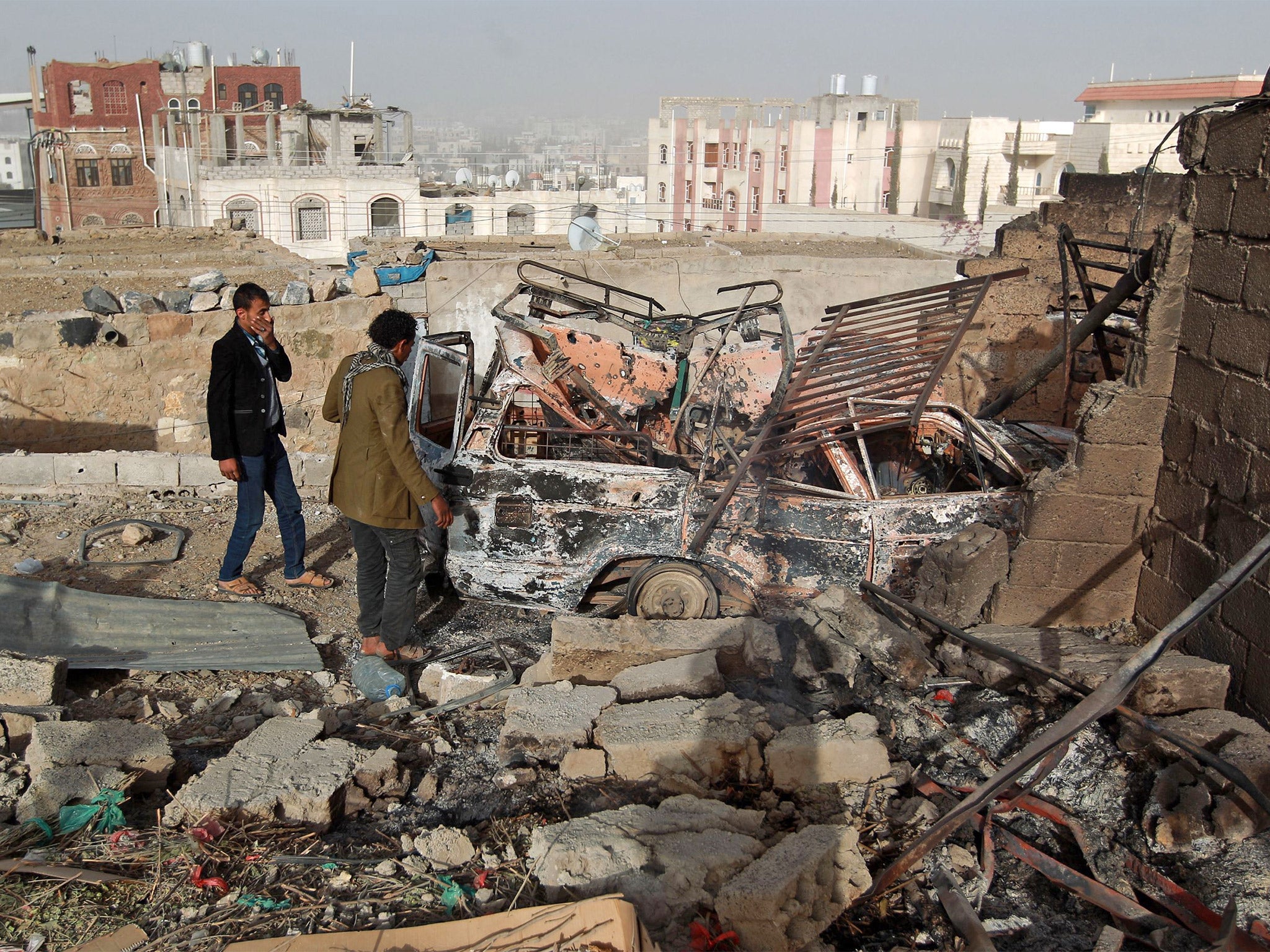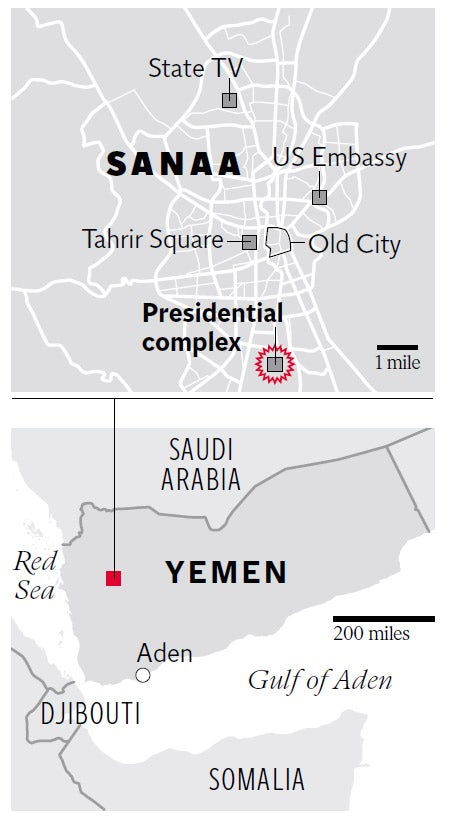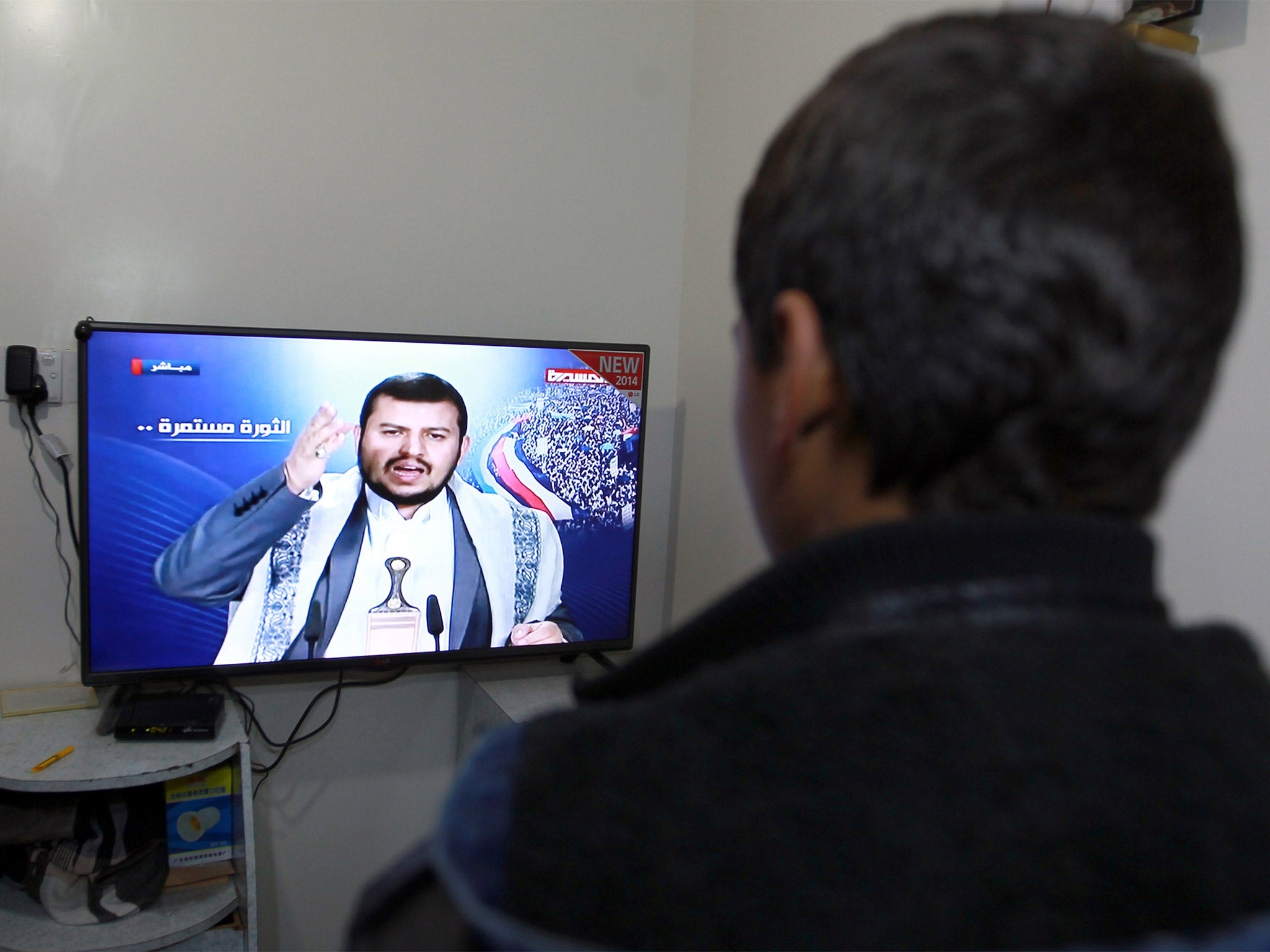Yemen 'coup': Shia rebels take presidential palace, but Abdrabbuh Mansour Hadi clings on to power
Houthi leader claims 'the President has no control' after Mr Hadi's residence came under heavy shelling

Yemen’s Houthi rebels seized the presidential palace today after fierce shelling. But the US-backed and increasingly embattled President Abdrabbuh Mansour Hadi appears to have clung on to power.
In a long speech, the Houthi leader, Abdul Malik al-Houthi, said the Yemeni government had betrayed the people but appeared to say that the rebels supported Mr Hadi remaining in power, despite the rebels’ takeover of the palace.
Nadia al-Sakkaf, the Information Minister, had previously described the events as the “completion of a coup”. She said “the President has no control” after Mr Hadi’s residence came under heavy shelling for half an hour while he was inside.
The Shia rebel Houthis, who are seeking greater autonomy for their northern heartland of Saada province, also took over state television on Monday.
Mr Houthi said the Yemeni government had abandoned the aims of a national agreement made in September last year. The weakening of Mr Hadi, a top US ally, undermines efforts by America and its allies to battle al-Qaeda’s Yemeni affiliate, which claimed responsibility for the attack on a Paris satirical magazine earlier this month. Washington has long viewed al-Qaeda in the Arabian Peninsula, or Aqap, as the global terror network’s most dangerous affiliate. In New York, the UN Security Council held an emergency meeting on the chaos.

Ms Sakkaf said the shelling started at 3pm local time by armed forces positioned over rooftops facing the President’s house. At the same time, Houthi rebels also raided the President’s offices, sweeping into the palace and looting arms depots, according to Colonel Saleh al-Jamalani, the commander of the Presidential Protection Force.
“This is a coup. There is no other word to describe what is happening,” Colonel Jamalani told the Associated Press, adding that the rebels were likely to have been aided by insiders. Al Jazeera reported that Colonel Jamalani had surrendered the third brigade of presidential guards to the rebels without resistance and left the palace.
The escalation shattered a tense ceasefire that had held overnight following Monday’s heavy clashes, when rebels seized control of state media in Sanaa and clashed with soldiers near the presidential palace. Heavy machine-gun fire and artillery shells struck around the presidential palace and sent civilians fleeing.
Monday’s violence left at least nine people dead and 67 wounded, Yemen’s Deputy Health Minister, Nasser Baoum said, while both Houthis and government forces blamed each other for the fighting.

The UN Secretary-General Ban Ki-moon expressed concern over the “deteriorating situation” and urged all sides to cease hostilities.
Adam Baron, an expert in Yemeni affairs and visiting fellow at the European Council on Foreign Relations, told The Independent: “Violence, is often used a prelude to – if not a smokescreen for – political negotiations.” The worst‑case scenario, he said, would be an “all-out civil war” and the “unravelling of Yemen”.
“Many in the centre and south of the country remain deeply opposed to al-Houthi,” he said. “Many Yemenis, as well as the international community, remain keen to see some political deal to solve things, but it remains unclear if key factions have the will to reach such an accord.”
Earlier, Houthi fighters roamed the streets on foot and in trucks mounted with anti-aircraft guns; they manned checkpoints across Sanaa and near the Prime Minister’s residence, and beefed-up their presence around other key buildings, including the intelligence headquarters.
The Houthis’ power grab has been long anticipated and analysts say they are only “finishing the job” they began in September.
AP
Join our commenting forum
Join thought-provoking conversations, follow other Independent readers and see their replies
Comments